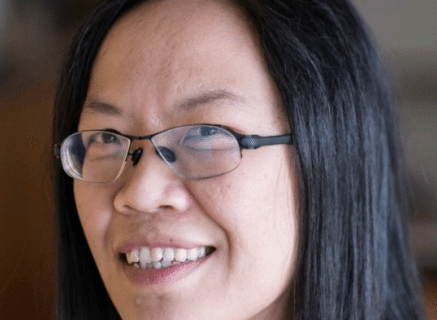
Professor Ya-Chieh Hsu
Harvard University
- 14:00
- Monash University, Clayton Campus, G19, Ground Floor, 15 Innovation Walk
- Australian Regenerative Medicine Institute
Abstract
The mammalian skin serves as a physical barrier protecting organisms from insults, infection, and dehydration. It regulates our body temperature and enables a wide diversity of sensations. These multifaceted functions are enabled by the rich array of cell types the skin harbors, including epidermis, hair follicles, immune cells, muscles, neurons, melanocytes, blood vessels, adipocytes, and dermal fibroblasts. Upon severe injuries, only the epidermis can be partially restored while many other cell types fail to regenerate, leaving permanent scars and compromising the skin’s ability to protect, stretch, and sense. My lab uses skin as a paradigm to understand and discover the cell-cell interactions crucial for building and regenerating a fully functional skin. We are particularly interested in the reciprocal interactions between regenerating tissues and their microenvironments, or niches. We have pioneered the work on transit-amplifying cells, common progeny for many somatic stem cells. Unlike the quiescent stem cells, transit-amplifying cells are highly proliferative and are therefore more vulnerable to chemotherapy drugs compared with stem cells. Our lab discovered that destroying the transit-amplifying cells within hair follicles causes widespread alterations in the skin, including changes to hair growth and wound healing. Combining techniques in cell and molecular biology, genetics, and microscopy, we are systematically eliminating different proteins secreted specifically by these transit-amplifying cells and determine how the loss of each affects the integrated processes involved in skin homeostasis. Our lab also has a long-standing interest in identifying novel niche component that regulates various skin stem cells during homeostasis and injury repair. Collectively, our findings could lead to strategies for alleviating or preventing side effects of chemotherapy, such as hair loss. Our findings will also elucidate how stem cells activity can be manipulated properly for therapeutic interventions for hair loss, wound repair, and skin cancers.
Bio
Ya-Chieh Hsu is an assistant professor at the Department of Stem Cell and Regenerative Biology at Harvard University, a principal faculty member at the Harvard Stem Cell Institute, and an associate member of the Broad Institute. She obtained her Bachelor’s degree in Life Science from National Tsing-Hua University in Taiwan. She completed her PhD at Baylor College of Medicine, where she studied organ size control using Drosophila as a model. During her postdoctoral research at The Rockefeller University with Elaine Fuchs, she delineated the lineage contribution and identified critical niche components for hair follicle stem cells. She joined Harvard University in the summer of 2014. Dr. Hsu is a recipient of Pew Biomedical Scholars Award, the Smith Family New Investigator Award, the Basil O’ Connor Starter Scholar Research Award, and the NIH K99-R00 Pathway to Independence Award. The general interest of the Hsu Laboratory is to discover how the choreographed interaction of diverse cell types enables development, regeneration, and repair of complex organs such as the mammalian skin.
